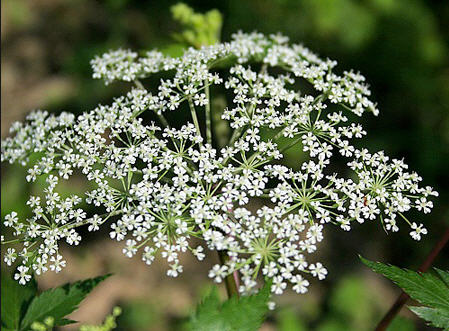Dong Quai: The Female Ginseng

Dong quai is a root known as the “female ginseng.” Ginseng is well-known for its ability to support endurance, memory, sexual function (particularly for men), and heart health.
Dong quai’s use in Chinese medicine has been documented for more than one thousand years, mainly for easing women’s menopausal symptoms, which is why it’s called the “female ginseng.”
But it’s not just for women. It can actually benefit men and women alike with many other aspects of health including mood, bone, joints, lungs, brain, and heart.
Female Ginseng Offers Relief from Female Hormone Issues
Like ginseng, dong quai is used as a tonic, especially by women experiencing health symptoms due to menopause.
Although studies have not yet been able to identify its mechanisms in the treatment of hot flashes and other menopausal complaints, dong quai continues to be used by a large number of women, who nevertheless obtain a benefit.
Female Ginseng Supports Mood
Research conducted at the University of Illinois concluded that dong quai has potential serotonin-like activity, which could explain its mood-boosting effects.
Female Ginseng Supports Bone Strength
Dong quai appears to support bone density, which is another reason for postmenopausal women to give it a try. A study involving bone-building cells found an increase in cell proliferation as well as other bone-building factors.
Female Ginseng Offers Joint Comfort
In an experimental osteoarthritis study, sodium ferulate derived from dong quai root reduced inflammation and apoptosis (programmed cell death) while another fraction promoted cartilage synthesis important for joint cushioning and mobility.
An additional dong quai compound known as calycosin has shown powerful binding affinity with the interleukin-6 receptor, which supports its traditional usage in Chinese medicine for the treatment of arthritis.
Female Ginseng Supports Lung Health
A study looking at the effects of dong quai in cells derived from the lungs of 10 patients with chronic bronchitis found an anti-inflammatory effect for an extract of the dong quai.
In chronic obstructive pulmonary disease (COPD) patients with high pulmonary blood pressure, an injection of 25% Angelica sinensis reduced pulmonary arterial pressure, pulmonary vascular resistance and other factors, leading the researchers to conclude that the herb could improve the blood flow dynamics in COPD patients.
Female Ginseng May Fight Cancer
Dong quai appears to act against cancer as well.
Brain cancer:
In rat and human brain tumor cells, administration of dong quai resulted in cell cycle arrest and apoptosis. In addition, animals experienced tumor shrinkage and prolonged survival, leading the researchers to conclude that dong quai has potential as an anti-brain tumor agent.
Cervical cancer:
When tested in other cell lines, dong quai has also demonstrated anticancer benefits.8 In cervical cancer cells, an extract from dong quai inhibited cell proliferation and induced apoptosis, both in cell cultures and in implanted cells.
Additional cancer research:
A polysaccharide from dong quai has also been shown to stop the growth in acute myelogenous leukemia (AML) stem cells. In colon cancer cells, three compounds derived from dong quai worked together synergistically to inhibit the spread of cancer cells. Dong quai has also exhibited anti-growth and anti-metastatic activity effects in lung cancer cells.
Female Ginseng is a Brain Booster
A study involving 1,404 subjects with acute cerebral infarction (brain damage due to blockage of blood flow to the brain) found improvement in 78.7% of those given dong quaias measured by neuro-function deficit scores.
In cultured cells treated with amyloid beta (the toxic protein that accumulates in the brains of humans with Alzheimer’s disease), dong quai extract prevented resultant oxidative stress-induced neurotoxicity, indicating a protective role against Alzheimer’s disease.
Female Ginseng Supports Heart Health
In vitro, dong quai protected human vascular endothelial cells from the damaging effects of oxidized low-density lipoprotein (the “bad” cholesterol), indicating a potential use in the prevention of cardiovascular disease.
The Bottom Line
The health benefits of the female ginseng (dong quai) are so numerous that everyone — male or female — should consider giving it a try.
- Ginseng: Supports a Healthy Libido
- American Ginseng Combats Cancer-Related Fatigue
- Our Top 10 List of Life Extending Herbs
